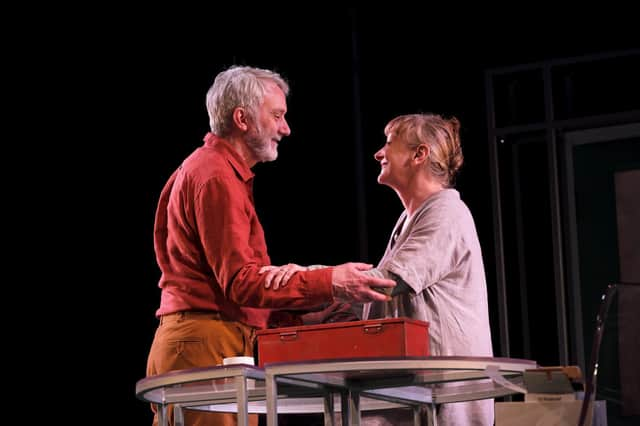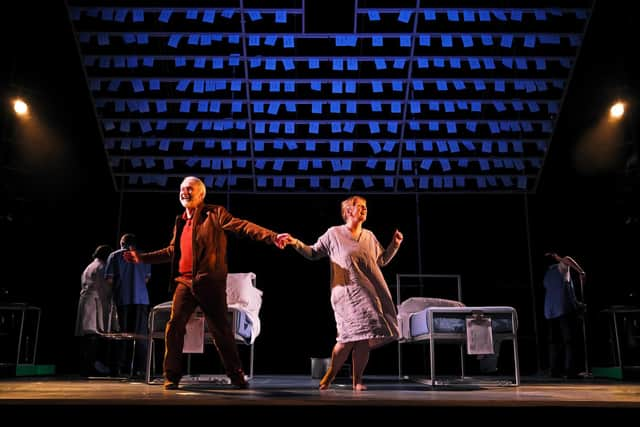Review: Maggie May at Leeds Playhouse


Maggie May
Leeds Playhouse
Yvette Huddleston 4/5


A truly beautiful, moving and uplifting piece of theatre, Maggie May by Frances Poet tells the story of one ordinary Leeds family who are coping with the challenges of everyday life while living with dementia.
Married couple Maggie (Eithne Browne) and Gordon (Tony Timberlake) have been together for 50 years; they are still very much in love and continue to enjoy dancing and singing to their favourite tunes of the 1960s and 70s. But some days Maggie struggles to remember the words to the songs or to recognise her best friend Jo (Maxine Finch).
Advertisement
Hide AdAdvertisement
Hide AdAs the play opens we learn that Gordon is recovering from astroke and that the couple have yet to tell their adult son Michael (Mark Holgate) of Maggie’s Alzheimer’s diagnosis. He is about to arrive for lunch with his new girlfriend Claire (Shireen Farkhoy) presenting many potential pitfalls for Maggie...
Francis O’Connor’s brilliant minimalist set has as its centrepiece an overhanging metal grid with sheafs of paper attached – Maggie’s reminder notes – which occasionally float down like leaves from an autumnal tree. It is a powerful visual allegory for the gradual fracturing of Maggie’s memory.
This is reflected in Poet’s sensitively crafted script – Maggie’s repeated refrain ‘eyes send message to brain’ conveys the effort required to hold on to those fragments even when faced with the most familiar things or people – at one point she identifies Gordon through the prompt: ‘hunched up shape of a man I love.’ The use of music throughout is joyful – as soon as it starts up, husband and wife are immediately liberated from their current difficulties and transported to their care-free youth.
There are some undeniably painful moments – the conversation between Maggie and her son Michael in which she tells him that while she can’t promise she won’t forget him, she knows she will always feel her love for him is heartbreaking – but there is also a lot of hope.
Advertisement
Hide AdAdvertisement
Hide AdThe focus of play is very much on what people living with dementia can do and not on what they can’t. The strongest message that you come away with is that with love and the right support, anything is possible.
To May 21. All performances are dementia-friendly.